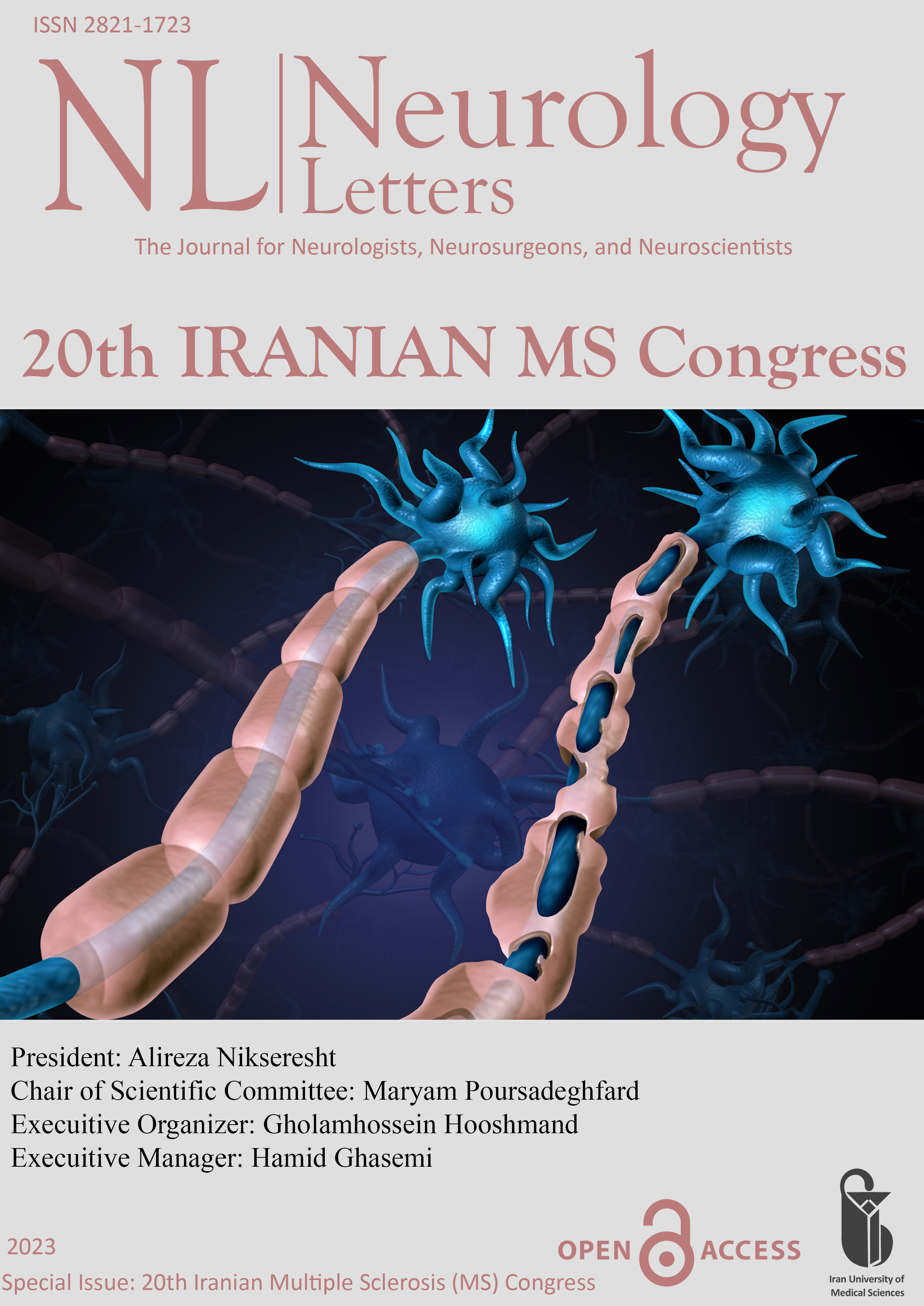The Effect of Multiple Sclerosis on Peripheral Audio-Vestibular System (PP-17)
Document Type : Poster Presentation
Author
Department of Audiology, School of Rehabilitation Sciences, Tabriz University of Medical Sciences, Tabriz, Iran
Abstract
Introduction: Multiple sclerosis (MS) is a chronic, immune mediated, inflammatory disease that causes a neurodegenerative process in the central nervous system (CNS). The autoimmune process of MS results in CNS plaques (focal areas of demyelination) in addition to axonal injury or loss. These plaques most commonly occur in the white matter of the brain, cerebral cortex including subpial regions, spinal cord and optic nerve, resulting in optic neuritis, double vision, tremor, ataxic gait, weakness and numbness in one or more limbs. It has been suggested that demyelination plaques can also occur in the central auditory and vestibular pathways resulting in hearing loss and balance disorders. Also, the vestibular nuclei and the root entry zone of the eighth cranial nerve have been shown to be one of the most common neuroanatomic locations for inflammatory demyelination, but it is unknown the effects of MS on the peripheral audio-vestibular pathways. So the aim of this article is a review on the effects of MS on peripheral audio-vestibular system.
Method and materials: We performed a literature review with the following keywords: multiple sclerosis, auditory function, vestibular function, hearing loss, dizziness and vertigo. Four different databases (PubMed, Scopus, and Web of science and Google Scholar) were independently screened. Publications in English were reviewed from 2000 to 2022.
Results: We reviewed a total of 20 articles. Results showed that peripheral neural connections in the internal auditory canal and within the inner ear structures may be affected by demyelination resulting in peripheral auditory and vestibular involvement in persons with MS.
Conclusion: both the peripheral and central vestibular systems may be involved in the degenerative process of MS, but the brainstem and central auditory and vestibular systems were more likely to be affected by MS than the peripheral auditory and vestibular system.
Keywords
 Neurology Letters
Neurology Letters
